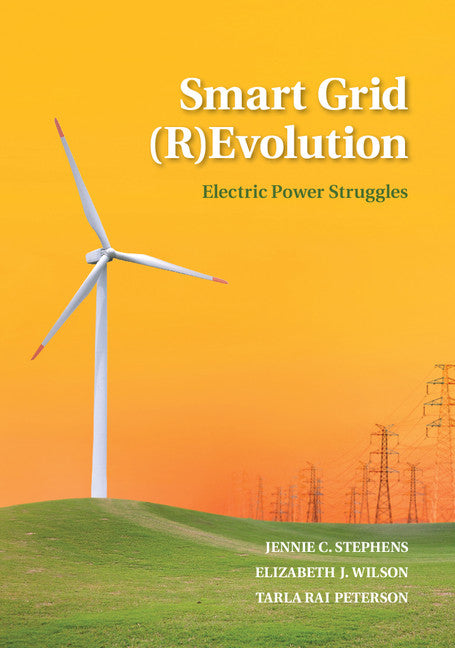Freshly Printed - allow 8 days lead
Couldn't load pickup availability
Smart Grid (R)Evolution
Electric Power Struggles
This book explores smart grid from a social perspective, for advanced students, academic researchers, and energy professionals.
Jennie C. Stephens (Author), Elizabeth J. Wilson (Author), Tarla Rai Peterson (Author)
9781107047280, Cambridge University Press
Hardback, published 26 February 2015
218 pages, 11 b/w illus.
26.2 x 18.4 x 1.7 cm, 0.59 kg
The term 'smart grid' has become a catch-all phrase to represent the potential benefits of a revamped and more sophisticated electricity system that can fulfil several societal expectations related to enhanced energy efficiency and sustainability. Smart grid promises to enable improved energy management by utilities and by consumers, to provide the ability to integrate higher levels of variable renewable energy into the electric grid, to support the development of microgrids, and to engage citizens in energy management. However, it also comes with potential pitfalls, such as increased cybersecurity vulnerabilities and privacy risks. Although discussions about smart grid have been dominated by technical and economic dimensions, this book takes a sociotechnical systems perspective to explore critical questions shaping energy system transitions. It will be invaluable for advanced students, academic researchers, and energy professionals in a wide range of disciplines, including energy studies, energy policy, environmental science, sustainability science and environmental engineering.
1. Emerging smart grid struggles
2. Promises and pitfalls of smart grid
3. Technologies of smart grid
4. Societal actors and dominant smart grid visions
5. Smart meters measuring, monitoring and managing electricity
6. Wind on the wires
7. Community and small-scale grid innovation
8. A changing climate and a smarter grid: critical linkages
9. Smart grid revolution, evolution, both or neither.
Subject Areas: Environmental science, engineering & technology [TQ], Electronics & communications engineering [TJ], Energy technology & engineering [TH], Sustainability [RNU], Social impact of environmental issues [RNT], The environment [RN], Earth sciences, geography, environment, planning [R], Environmental economics [KCN], Comparative politics [JPB]


